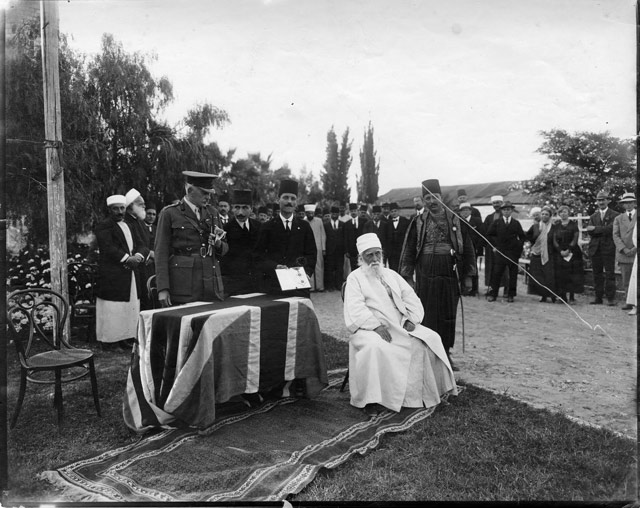The views expressed in our content reflect individual perspectives and do not represent the authoritative views of the Baha'i Faith.
For most of us, authentic religion focuses on the transcendent. True religion links loving, kind and compassionate relationships with others on this plane of existence to the growth of the soul and an eternal life in the next.
But some people — especially those who focus fanatically on a single component of their belief system – discard loving, kind and compassionate relationships in favor of an expectation; some hoped-for “sacred” outcome or end that justifies any means for its accomplishment.
This basic human moral question, explored in detail by Immanuel Kant and just about every philosopher since, asks “Can the ends ever justify the means?” In other words, “Does it matter how I get what I want, as long as I get it?” Or “Is it OK to do something wrong or immoral to achieve a positive end?”
Authentic religion always answers that question with an emphatic “No.”
In his book When Religion Becomes Evil, Dr. Charles Kimball says that this question reveals a common warning sign across all religious experience — and then he lets us know how to recognize it:
A particular goal or end was articulated as essential or paramount, and in defense of that goal people ignored the call to compassionate, constructive relationships with their neighbors. When people are dehumanized or treated as objects, the purported goal should immediately be called into question. – p. 130.
Our world, sadly, has seen its share of ugly, vile, inhumane, ends-justify-the-means behavior. The Nazi holocaust; the ethnic cleansing in Rwanda and the former Yugoslavia and literally dozens of other countries in Europe, Africa, Asia and the Americas; the continuing oppression of the world’s poor by their governments and the world’s wealthiest individuals and corporations – all of these terrible mass failures of humanity to treat each other with love and consideration point out the crying need for a new dedication to humanity’s oldest and most consistent religious and moral law, the Golden Rule.
Embedded in every true religion, all of the Prophets have agreed on the Golden Rule. Many westerners are familiar with the Old Testament version, from Leviticus 19:18: “You shall love your neighbor as yourself.” But the Golden Rule exists in every great Faith:
One should never do that to another which one regards as injurious to one’s own self. – Hinduism (Brihaspati, Mahabharata, Anusasana Parva, Section CXIII, Verse 8)
Hurt not others in ways that you yourself would find hurtful.- Buddhism (Udanavarga 5:18)
And as ye would that men should do to you, do ye also to them likewise. – Christianity (Luke, 6:31)
As you would have people do to you, do to them; and what you dislike to be done to you, don’t do to them. – Islam (Kitab al-Kafi, vol. 2, p. 146)
And if thine eyes be turned towards justice, choose thou for thy neighbor that which thou choosest for thyself. – Baha’i Faith (Tablets of Baha’u’llah, p. 64)
This profound and powerful law, the basis of all fair and just policy in every legitimate legal system the world over, has a special place in the Baha’i writings. In fact, it takes on a new dimension when Baha’u’llah says:
Blessed is he who preferreth his brother before himself. – Tablets of Baha’u’llah, p. 71.
This teaching from Baha’u’llah – that it is just to choose for others what we choose for ourselves; but that it is blessed when we actually prefer others before ourselves – has caused some observers to characterize the Baha’i Faith as an “altruistic and other-directed religion”.
That reputation for altruism undoubtedly comes from the lives of the Central Figures of the Baha’i cause — The Bab, Baha’u’llah and Abdu’l-Baha — who devoted their entire beings to healing the ills of humanity. But that reputation for altruism also comes from the orientation of the Baha’is, who endeavor to sacrificially serve others as the highest goal of their Faith. Abdu’l-Baha said:
I desire that your hearts may be directed to the Kingdom of God, that your intentions may be pure and sincere, your purposes turned toward altruistic accomplishment unmindful of your own welfare; nay, rather, may all your intentions center in the welfare of humanity, and may you seek to sacrifice yourselves in the pathway of devotion to mankind. – Abdu’l-Baha, The Promulgation of Universal Peace, p. 54.

















Comments
Sign in or create an account
Continue with Googleor